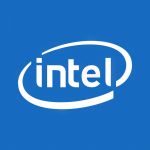Welcome to our dedicated page for Intel news (Ticker: INTC), a resource for investors and traders seeking the latest updates and insights on Intel stock.
Intel Corporation (Nasdaq: INTC) regularly issues news and press releases that highlight its role in designing and manufacturing advanced semiconductors and compute platforms. This news feed aggregates Intel’s publicly released updates, giving readers a single place to review the company’s own announcements about its technology roadmap, financial results and strategic relationships.
Recent Intel news has included announcements about Intel Core Ultra Series 3 processors, described by the company as the first AI PC platform built on Intel 18A process technology and powering a large number of PC designs. Intel has also reported on edge-certified versions of these processors for embedded and industrial use cases, touching areas such as robotics, smart cities, automation and healthcare.
Investors and followers of INTC stock can use this page to read Intel’s earnings releases, where the company discusses quarterly and full-year financial results, segment performance for Intel Products and Intel Foundry, and commentary on demand trends and strategic priorities. Intel’s news also covers participation in investor conferences, where representatives discuss the company’s business and strategy with the financial community.
Another important category of Intel news involves strategic transactions and collaborations. The company has announced agreements with the U.S. Department of Commerce under the CHIPS Act framework, securities purchase agreements with NVIDIA and SoftBank, and the sale of a majority interest in its Altera business. Intel has also publicized a collaboration with NVIDIA to develop AI infrastructure and personal computing products that combine Intel’s CPU technologies with NVIDIA’s AI and accelerated computing platforms.
By reviewing Intel’s own press releases on this page, readers can follow developments in areas such as AI computing, foundry services, government funding arrangements and majority-owned subsidiaries like Mobileye. This makes the INTC news feed a useful reference for tracking how Intel describes its progress across client computing, data center and AI, manufacturing and capital structure initiatives.
Summary not available.
Summary not available.
Summary not available.
Summary not available.
Summary not available.
Summary not available.
Summary not available.
Summary not available.
Summary not available.
Summary not available.

